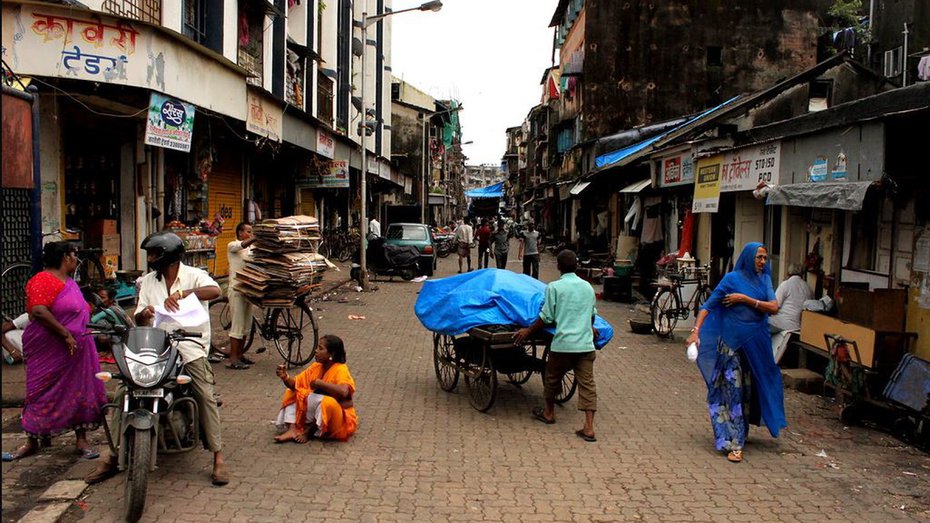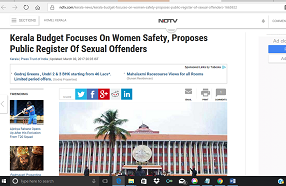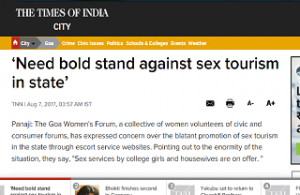Trafficking survivor stitches empowerment dreams

Date: July 30, 2019
Location: Calcutta, India
30-year-old trafficking survivor is sewing up dreams with her own tailoring unit in South 24-Parganas, where she is empowering underprivileged girls by providing them employment.
The journey has been far from easy. The woman, with roots in Maharashtra, was trafficked in her teens and spent nearly four years in the red-light area of Kamathipura in Mumbai. Soon after her return, she tested HIV positive.
Rejected by her family after being freed from the clutches of traffickers, this gritty woman is among the few who have succeeded in creating a new life for themselves post-rescue.
“Many girls are married off after returning home, some are re-trafficked and others go missing. Only 10 per cent get back to education or learn a skill to earn a livelihood,” said Manabi Nag, in charge of a shelter run by NGO Sanlaap, where the girl spent 12 years after her rescue.
The trauma of her ordeal didn’t, however, rob the woman of her zeal to do something. “I always wanted to do something big and realised soon enough that tailoring was my forte,” said the 30-year-old, now married and a mother of one.
Besides continuing to educate herself, she started learning stitching and cutting under the skill training department of Sanlaap. “I trained there for two years before being selected for a workshop at the National Institute of Fashion Technology. I was declared ‘outstanding’ at the end of the course in 2004. Since then I wanted to run my own business,” the entrepreneur said on the eve of World Trafficking Day, which falls on July 30.
From taking orders at home post-marriage to setting up her own shop with just one machine in a space owned by her in-laws, she continued to spread her wings. “I took a loan to do up the shop,” she added.
In five years, her business has grown and so has her confidence. She now has several machines and four apprentices who work at the shop. Many more girls train under her.
“I provide free training to underprivileged girls. Many start their own business after the training while some continue to work with me,” said the woman, who gets 20-30 orders a month for blouses and salwar suits. The orders double during festivals.
“I know embroidery and many other stitches. I can also stitch western attire. But there is not much demand for that here. My husband and I download designs from the Internet which we show our customers. During festivals, I am flooded with orders and my shop remains open till 1am,” said the entrepreneur who dreams of opening a branch in Calcutta and venturing into e-commerce.
Her typical day starts at 5am. “I do my household chores before opening the shop around 10am. My girls report for work by 9.30am. We work till 1pm and break for lunch. I reopen my shop at 4.30pm and work till 9pm. Sometimes I have so many apprentices that that shop is overcrowded. But I am happy that I am empowering others too,” she said.
Trina Chakrabarti, the regional director (east) of CRY, which has been working in partnership with Sanlaap, stressed the need for empowerment of trafficking survivors.
“Trafficking survivors need hand-holding for years to come out of the trauma. They must be trained in livelihood skills because economic independence checks trafficking. We need to empower more survivors so that they do not become vulnerable again,” Chakrabarti said.
Read the article here.
“It’s Saturday evening at the National Human Trafficking Hotline, and we’ve had non-stop calls since mid-afternoon. I know there are Read more
“It’s Saturday evening at the National Human Trafficking Hotline, and we’ve had non-stop calls since mid-afternoon. I know there are Read more



